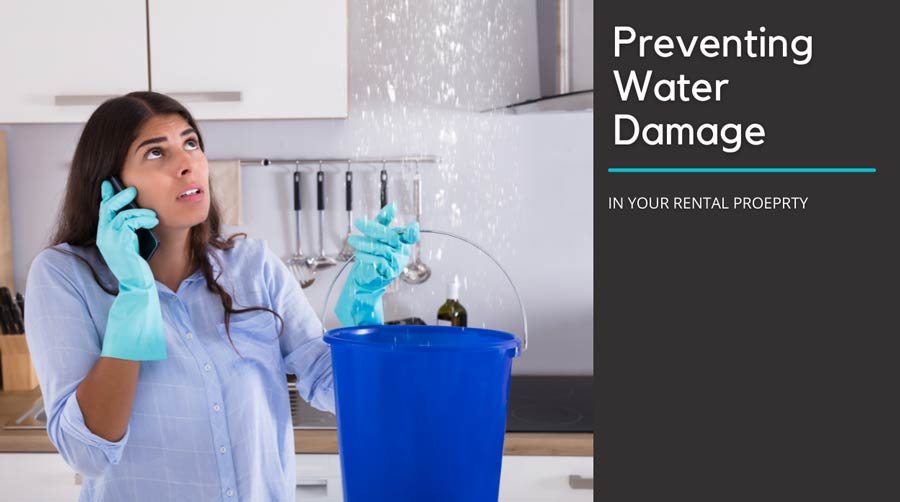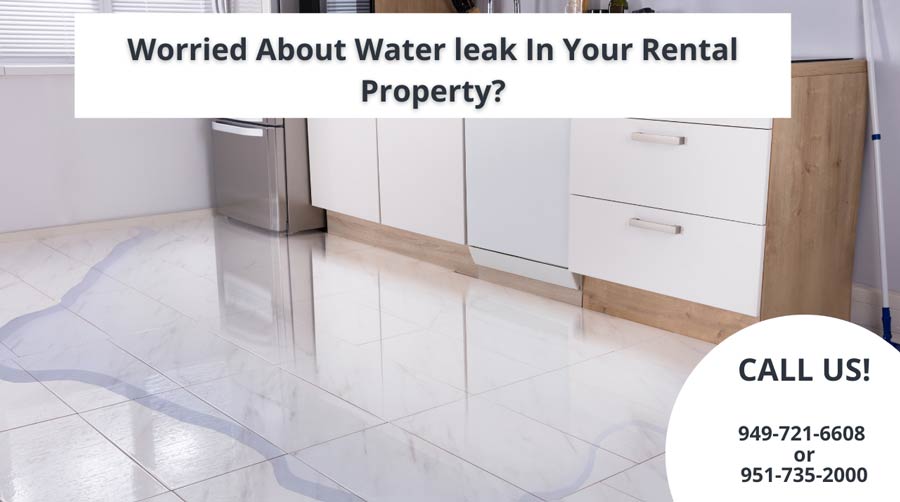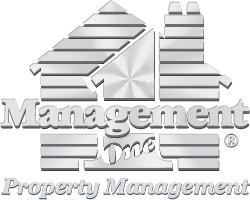
Preventing Water Damage in Your Rental Home
Let's face it; water is a force of nature. Masses of whirling water, such as hurricanes, can devastate landmasses. It's an excellent solvent, as it can dissolve more substances than any other liquid. Water makes life possible in this lil' ol' world of ours. Fish thrive in it, and surfers do too. Average rainfall helps crops grow; harsh rain can wipe out a crop. It tears down rock and soil, making landmarks like the Grand Canyon possible, and you know what? You pipe this incredible force of nature right into your house. Keeping water damage at bay is something that we all take for granted. However, unchecked, water can do an incredible amount of damage to your home in a very short time.
Like, what kind of water damage?
You may have silently asked that in your head, and lucky you, I'm right here to provide an answer, aloud. Or, you know, in type, anyway.
First, the basics.
Look at your walls and ceilings as an envelope that protects everything within the home, including the structural elements themselves.
The most critical part of that envelope is the roof, second to that, the walls, followed by the slope of the land.
Of course, the roof keeps rainfall out and is supposed to shed water away from the foundation.
The walls seal beneath the roof to keep all other weather-related water out.
The slope of the land ought to shed water away from the house and its foundation.
Secondarily
While weather events such as rain, hail, and snow are the first focus, there are other elements to consider. Items such as:
- Piping
- Drainage to the sewer
- Water faucets and connection points
- Drains from sinks and appliances
This small list has two systems: pressurized and gravity-fed lines that are not pressurized.
Piping, faucets, and connections operate with household pressure pushing against them around the clock. Drains only evacuate water from one place to another and are gravity-fed. In other words, they are not under pressure. Water damage can originate from pressurized and un-pressurized systems.
I have not taken a poll, but if I were looking at which causes the most water damage, cost-wise, I would say it is probably an even split! Water systems in the U.S. are well-engineered, regardless of whether they are pressurized or gravity fed. Each has components that fail on occasion, and it is these items that cost you the most money in damage, aside from a freak hurricane or flood damage.
Pressurize water system damage
Your water supply lines, the pressurized lines, can damage your property lightning-fast, but it's usually the slow leak that causes the most damage, resulting in a higher cost. People notice a large leak much faster than a slow leak. Then they cut off the household water and make that dreaded call to the plumber.
On the other hand, a slow leak can go on for days, weeks, or even months before being noticed. It is not uncommon for people to ignore a small leak, like a drip under the water heater, because "you know, it's just a small leak, right? I'll do something about that someday..."
In the meantime, drywall is melting, and microbial lifeforms are wringing their hands and giggling their insidious selves silly. Okay, I don't know if they giggle or if they have hands; the point is, they love dark wet conditions! One expensive plumbing repair that I hear about much too often is...
Slab Leaks
A slab leak can result from the concrete foundation of a house settling, seismic activity, but commonly a faulty pressure regulator is a cause. Let me explain.
City water pressure is typically between 110 and 120 psi (pounds per square inch). The pressure regulator steps that pressure down to between 55 and 65 psi before it enters the house. That is the safe zone. Any lower, and you will have slow running water in the house. Any higher than 80 psi and you're in trouble! Pipes bursting, water heater failure, and more. So, if you have toilets that auto-flush, sprinkler valves that pop, a water heater that fails early, or pipes that hammer when you shut the water off, you may have a failing pressure regulator. They last between 10 to 15 years but can fail as quickly as three years!
I recommend you purchase a water pressure tester so that you can detect and prevent a slab leak.
Let's Talk about Roofing
I have written articles on roofing, so I will not rehash any of that. If your roof is leaking, fix it or replace it. Better still, if it's near the end of its life, start cutting back on your lunch budget because there's an expense coming soon! I cannot state it strongly enough: the longer you wait to address a roofing issue, the more it will cost.
Down the sides
Please don't be that person who neglects your siding to the point where water can penetrate the exterior walls. It's never a lot of water, yet any water is unacceptable. You would think this a no-brainer, what with drafts, hot air getting out in winter and in during summer. Sealing stucco, or for that matter, wood siding, can benefit you more than just controlling the interior climate. You will also reduce the risk of molds growing in your walls, as well as insulation sag. That's where the wall insulation gets saturated to the point the siding pooches out, usually near the foundation.
So, to sum it up, repair the exterior walls, and keep them painted!
The Slope
Direct water away from your foundation and off somewhere else to drain away via gravity if your slope is right. However, not all lots/houses/slopes are done right! I've seen a good many that could benefit from additional grading. Usually, this is because someone, at some time, inadvertently altered the original landscape grade. If you are considering drastically changing your landscape scheme, it is best to trust a professional.
Drainage issues
The most commonplace to see a drainage leak is under sinks, in cabinets. I recommend that you check under sinks monthly. Look for any signs of a water leak and feel around the pipes for any moisture. The biggest tattler of under-sink leaks is a mildew smell. An early catch translates directly into money saved!
What to do when you have a water leak?
First, turn off the water to the house at your gate valve. It will either be a little 3" wheel by your front faucet or a 1/4 turn ball valve. If this does not stop the water, you may have to turn the water off in the street. This process is usually relatively simple, it's right there at your water meter, and it's usually a gate valve or ball valve too.
Then get on the horn to a plumber.
Water Damage Remediation
Remediation is where things get costly. If you have significant damage, you're in for a bit of a ride. Of course, you will file an insurance claim, and your insurance company will send a company to fix your property. You will have to pay the deductible, and at the end of the process, your house will be "good as new." However, your insurance rates may go up as a result as it is not uncommon for a $20,000+ price tag on remediation company work. On the other hand, the work will be done right.
What can I expect during this process?
Do know that you, or your resident, will have to deal with possibly being displaced for a few days. Or longer. And if not displaced, expect to have fans and dehumidifiers running around the clock for several days, bumping the electric bill up. You will also have drywall cut as high as the water penetrated (commonly about 18 inches up from the floor) for a week or two, while the studs inside dry out. There will be debris, dust, noise, all of that. Your flooring will likely have to be removed as well.
Preventing Water Damage
If you have galvanized water supply pipes, look to have them replaced! They were not an inferior product when installed many years ago. Although they may look great on the outside, it's inside the pipes where the damage resides. They corrode from the inside out.
Check your water pressure. You can pick up a water pressure meter at Lowes or Home Depot for about $10.
Listen for hammering pipes. This sound is a sign of over-pressured water lines.
Actively look for leaks under sinks at least once a month.
Use a licensed and insured plumber or contractor to fix your plumbing issues. They know the building codes, and after all, it is their license on the line if they do the work wrong, and they carry insurance for that very reason. "Bobby Joe the Fixin' Shmo" need not apply.











